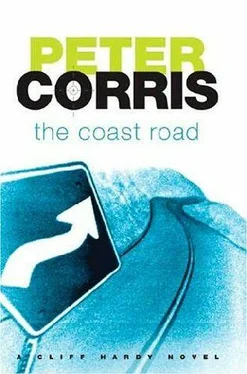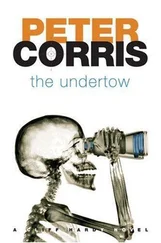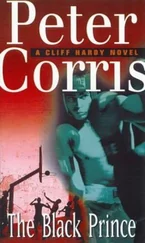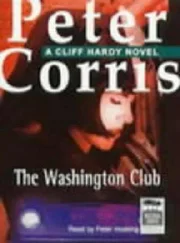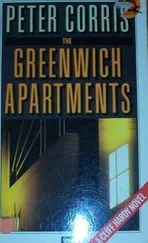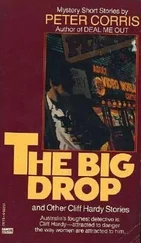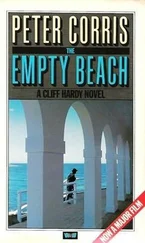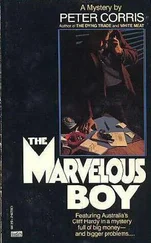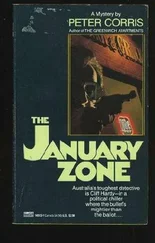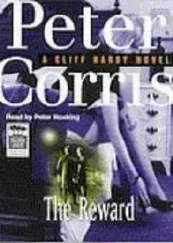Peter Corris - The Coast Road
Здесь есть возможность читать онлайн «Peter Corris - The Coast Road» весь текст электронной книги совершенно бесплатно (целиком полную версию без сокращений). В некоторых случаях можно слушать аудио, скачать через торрент в формате fb2 и присутствует краткое содержание. Жанр: Криминальный детектив, на английском языке. Описание произведения, (предисловие) а так же отзывы посетителей доступны на портале библиотеки ЛибКат.
- Название:The Coast Road
- Автор:
- Жанр:
- Год:неизвестен
- ISBN:нет данных
- Рейтинг книги:4 / 5. Голосов: 1
-
Избранное:Добавить в избранное
- Отзывы:
-
Ваша оценка:
- 80
- 1
- 2
- 3
- 4
- 5
The Coast Road: краткое содержание, описание и аннотация
Предлагаем к чтению аннотацию, описание, краткое содержание или предисловие (зависит от того, что написал сам автор книги «The Coast Road»). Если вы не нашли необходимую информацию о книге — напишите в комментариях, мы постараемся отыскать её.
The Coast Road — читать онлайн бесплатно полную книгу (весь текст) целиком
Ниже представлен текст книги, разбитый по страницам. Система сохранения места последней прочитанной страницы, позволяет с удобством читать онлайн бесплатно книгу «The Coast Road», без необходимости каждый раз заново искать на чём Вы остановились. Поставьте закладку, и сможете в любой момент перейти на страницу, на которой закончили чтение.
Интервал:
Закладка:
I drove home in a very confused state. Easy enough to get angry about being taken for a mug if that’s what had happened. I tried to keep the anger in check to permit clear thinking. If everything Karen Bach had said was true, then Marisha Karatsky was still playing some sort of game to do with Stefan Parnevik. Had she lost him and wanted him back? Had she suspected already that Kristina was with him and all I had done was confirm it? Was my job just to locate him with evidence of his association with an underage female to allow Marisha to…?
My mood deteriorated as I thought about it. It had been a longish and confusing day, not arduous physically, but taxing just the same. I made myself a meal by defrosting meat I had in the freezer, chopping up some onions and subjecting the mixture to a dose of Clive of India curry powder. I still had a couple of bottles of chardonnay left from my one wine club purchase, since the literature had gone in the bin for its patronising and pretentious tone. I microwaved some pappadums and sat down to it with a big glass of wine and a few more paracetamols. My head was hurting again. I was supposed to see Marisha that evening. How the hell was I going to do that?
Confrontation. Nothing else for it. I finished the meal off with a cup of strong coffee, showered and headed for Dulwich Hill. I wasn’t looking forward to the meeting and took the drive slower than I needed to. I buzzed her flat and got no response. Buzzed again, and again. Nothing. I called her number on my mobile and the phone rang and rang. No answering machine. I stood outside the building with frustration and anger mounting inside me.
The parking spaces for the building were unnumbered so I had no way of telling whether she had a car or if it was there or not. I walked along the adjacent street, staring up at the windows. Hers were curtained and dark. I could’ve hung around, tried to get myself buzzed in by another resident, or maybe slipped in when someone was going in or out. Once in, I could’ve picked her lock and snooped. Instead, I consigned her and her daughter to hell and drove home. I knocked off the rest of the bottle of white and went to bed.
I don’t often dream and when I do I usually forget the content straight off. I remember some though, and the ones I remember have two themes. One is that I’m in danger in a high place. These dreams usually end with me falling or jumping and then I wake up. In others, my father is present. I didn’t get on well with him or admire him, and in the dreams he reproaches me the way he did in life. I try to find some common ground with him but it doesn’t happen. What Freud or Jung would make of all this I don’t know and don’t care. So the dream I had where my father criticised me for fucking Marisha Karatsky (though that was a word I never heard him use) didn’t surprise me, but it hung disturbingly around through the early part of the morning.
I rang her number several times with no result. Kristina’s mobile number had registered on my mobile when she’d rung me after taking the car. I rang it and got the message that the number was no longer in operation. So the Karatskys had quit the stage. I was out a day’s pay and a few expenses. No big deal. But being used and deceived, if that’s what had happened, rankled. I tried to recapture the quality of the time with Marisha-the sex, the talk, the laughs. It had seemed pretty good, but the more I thought about it, the more it seemed like an act. That intense, that quickly?
I could shrug it off. I’d had worse disappointments and fifteen-year-old Kristina had shown every sign of being able to handle herself in the dodgy world she was in, apparently by choice. I decided to turn my attention to the Farmer matter. That was where the money was, and the questions to be answered, and there was no emotional involvement to muddy the waters.
I got the Illawarra Mercury up online. It contained a substantial article on the murder of Adam MacPherson, thirty-three, insurance salesman. The writer’s name was Aaron De Witt and I phoned him at the paper. At a guess, more than fifty per cent of the calls journalists get are from nutters, liars or worse. A good journo can tell pretty quickly whether the caller is worth his or her time. After a few sentences I had De Witt’s attention.
‘Not much detail on how and where, let alone why,’ I said.
‘Shotgun up close. What you might call emphatic.’
‘Also noisy.’
‘Well, up-market townhouse, double glazed, and you know how it is-you hear shots at night, it’s probably Bruce or Clint.’
‘What about why?’
‘We should meet.’
‘I’m coming down today. You say where and when.’
‘Any preferences?’
‘I’d rather not be too close to any police precincts.’
He laughed. He said he was writing a story on the problem with the coast road and would be in the Coalcliff area. We agreed to meet in the Clifton pub at 1 pm, giving me time to pack a few more things than I’d taken the first time and to fit in a quick gym workout. Before I left I rang Marisha’s number again with the same result. I had a fleeting, unsettling thought: what if the pair of them were in some kind of danger from Parnevik or someone else? I dismissed it, but it was enough to take the edge off my pleasure at getting out of Sydney.
The Clifton pub sits high above a rocky shore. The coastline is fragile and photographs inside the hotel show that it has changed a lot over the years. The mine that burrowed into the escarpment is now just a coking operation, and the jetty where the coal was loaded was swept away years ago. Most of the houses that once perched on top of the cliff are long gone and the instability problem with the road indicates that changes are still going on. There was a concrete barrier and a boom gate across the road and a high chain link fence with barbed wire further on. With the coast road closed for the couple of kilometres between Clifton and Coalcliff, the locals have to go a long way around to north or south to get to where they used to go directly. The closure had made the Sydney papers and there was a suggestion that house prices in the area could drop as a result. Nobody’d be happy about it.
The weather had taken a turn for the worse and I was wearing jeans, my flannie and a leather jacket and needing every layer. I was early and business wasn’t brisk. I studied the photographs of the shoreline and then a set featuring boxers who were from the area or had fought locally in the golden era of Australian boxing-Spargo, Delaney, Patrick and others.
I was nursing a beer on the big back deck that looked straight east to New Zealand when a tall man walked out and ran his eye over the three or four of us rugged outside drinkers. He held a copy of the Mercury in one hand and a schooner in the other. I caught his eye and nodded. He must have topped 195 centimetres and a couple of stiff strides brought him to my table.
He stuck out his hand. ‘De Witt.’
‘Cliff Hardy.’ We shook.
‘Thing you should know,’ he said. ‘I’m a recovering alcoholic. This is soda and bitters. I can handle staying here about as long as it’ll take you to finish that beer.’
‘Okay,’ I said. ‘You test yourself, right?’
He nodded. ‘You’ve been there?’
An image of Glen Withers, tight as a drum with the effort of not drinking in a drinking environment, came to my mind. ‘Friend,’ I said.
I proposed that we meet at the Farmer property in Wombarra. It seemed like a good setting for us to exchange information. The way it can in the Illawarra, the weather changed in a few minutes. The sun was shining and the wind had dropped when I reached the gate leading to the Farmer acres. Off with the jacket. De Witt parked his Volvo station wagon carefully by the side of the road but stepped out into thick grass and a soft spot. He was wearing a baggy linen suit over a black poloneck skivvy. Shiny black slip-ons, now rather muddy. He picked his way carefully towards me over the sloppy ground.
Читать дальшеИнтервал:
Закладка:
Похожие книги на «The Coast Road»
Представляем Вашему вниманию похожие книги на «The Coast Road» списком для выбора. Мы отобрали схожую по названию и смыслу литературу в надежде предоставить читателям больше вариантов отыскать новые, интересные, ещё непрочитанные произведения.
Обсуждение, отзывы о книге «The Coast Road» и просто собственные мнения читателей. Оставьте ваши комментарии, напишите, что Вы думаете о произведении, его смысле или главных героях. Укажите что конкретно понравилось, а что нет, и почему Вы так считаете.
